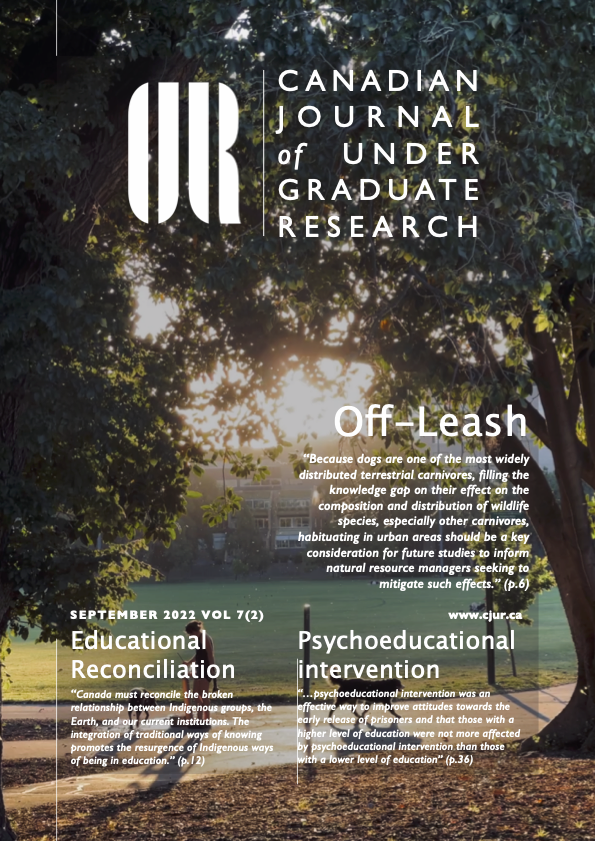Educational Reconciliation: Implementing Traditional Land-Based Learning in Canadian Universities
Abstract
Indigenous groups across Turtle Island are often marginalized in the creation of contemporary theories and policies, creating a knowledge gap of the traditional Indigenous ways of teaching and knowing in academia. Land-based learning encompasses the ways of knowing of Indigenous groups and when implemented as part of the ii' taa'poh'to'p, the University of Calgary Indigenous Strategic Plan promotes the decolonization of current pedagogies and the understanding of the importance of land to Indigenous peoples. We aimed to decolonize a university course through land-based learning and bridging the gap between Western and Indigenous knowledge while remaining respectful of Indigenous protocols and inflicted traumas by settler-colonial goals to extract knowledge from their communities. This study sought to research how land-based learning could be implemented into an Indigenous Studies course on animal-human relationships at the University of Calgary. Through a qualitative study of peer-reviewed sources predominantly written by Indigenous authors, we found common themes on how we could implement land-based learning into the course. Based on our findings, we proposed a three-part learning module. Firstly, the students should be introduced to the topic of land-based learning before attempting a land-based activity. Secondly, we suggest the incorporation of a land-based activity led by an Indigenous Knowledge Holder or Elder. Lastly, the learning module should be finalized with a class discussion and self-reflection assignment to provide students with the opportunity to solidify their learning. As Canada moves to reconcile a broken relationship with Indigenous groups and the Earth, the integration of traditional ways of knowing promotes the resurgence of Indigenous ways of being in education.
Published
Issue
Section
License
Authors who publish with this journal agree to the following terms:
- Authors retain copyright and grant the journal right of first publication with the work simultaneously licensed under a Creative Commons Attribution License that allows others to share the work with an acknowledgement of the work's authorship and initial publication in this journal.
- Authors are able to enter into separate, additional contractual arrangements for the non-exclusive distribution of the journal's published version of the work (e.g., post it to an institutional repository or publish it in a book), with an acknowledgement of its initial publication in this journal.
- Authors are permitted and encouraged to post their work online (e.g., in institutional repositories or on their website) prior to and during the submission process, as it can lead to productive exchanges, as well as earlier and greater citation of published work (See The Effect of Open Access).

